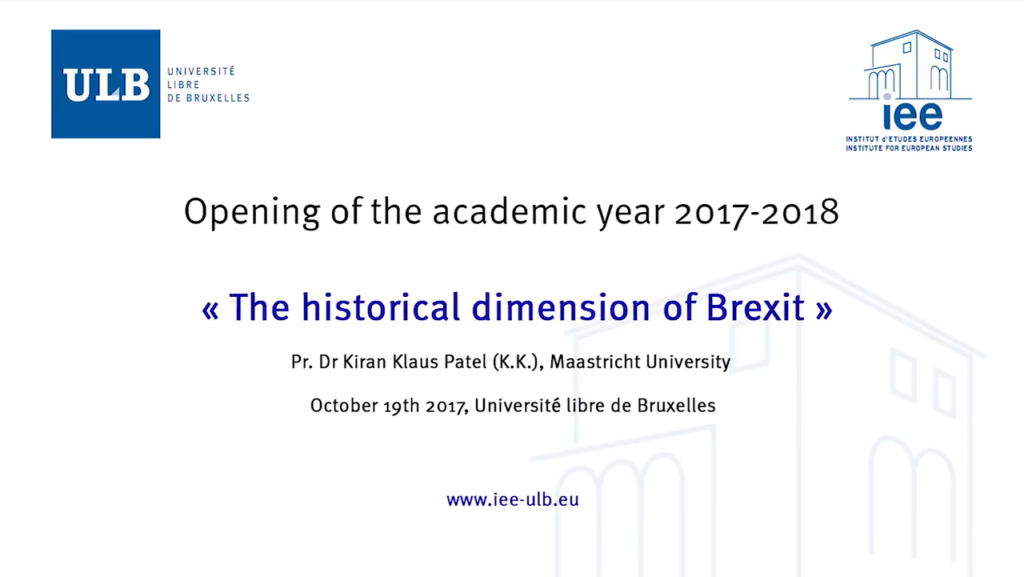In 2016, the United Kingdom became the first member state that decided to leave the European Union. For Kiran Patel, the exits or attempts to exit the European Union have been scarcely studied. However, the history of this partial disintegration of the European Union offers numerous points of comparison from which to extract lessons.
In 2016, the United Kingdom became the first member state that decided to leave the European Union. For Kiran Patel, the exits or attempts to exit the European Union have been scarcely studied. However, the history of this partial disintegration of the European Union offers numerous points of comparison from which to extract lessons.
The exits from the European Community of Greenland in 1985 or Algeria in 1962 constitute thought-provoking historical precedents.
The recent history of Brexit and other potential exits from the European Union demonstrate the need to overcome the linear lecture of a European integration history that only leads to a stronger union and to consider the dynamics of independence that participate in that history. Kiran Patel
Brexit, a symptom of a dynamic of European integration
In fact, the history of European unification is liven up by a juxtaposition of centrifugal and centripetal forces that are still in play today. The sovereignty crisis in Catalonia, Scotland or even Venice prove the predominance of this dynamics.
The historical dimensions of Brexit underlined by Kiran Patel are a reflexion of the complex relationship between the integration and disintegration that bestrew European integration. The cases of Greenland and Algeria exemplify this double dimension where the quest for sovereignty and independence is accompanied by a will for closer relations with the former European Community through association agreements.
After Brexit, the hypothesis of Commonwealth as an alternative project sustained by Theresa May on her January 17th, 2017 speech represents for Kiran Patel a reminder of the importance and the weight of the colonial past in the history of European integration. The Algerian exit, and to a lesser extent, Greenland’s are there as a reminder.
The same goes for the island of Saint-Barthélemy in 2012, or the controversies around Gibraltar’s status. They illustrate how much the European Union remains haunted by the old continent’s tormented past. In the eyes of Kiran Patel, those different examples as well as the recent history of Brexit and other potential exits from the European Union demonstrate the need to overcome the linear lecture of a European integration history that only lead to a stronger union and to consider the dynamics of independence that participate in that history.




